Brake Rotor Replacement Front Wheel
Tools Required
J 42450-A Wheel Hub Resurfacing Kit
Removal Procedure
Important: The following service procedures apply's to both 4 wheel and 2 wheel drive vehicles.
- Raise the vehicle. Refer to Lifting and Jacking the Vehicle in General Information.
- Remove the tire and wheel assembly. Refer to Wheel Removal in Tires and Wheels.
- Remove the brake caliper, 2 wheel drive vehicles. Refer to Brake Caliper Replacement .
- Remove the brake caliper and mounting bracket, 4 wheel drive. Refer to Brake Caliper Replacement .
- Remove the retaining ring, 4 wheel drive vehicles only.
- Remove the brake rotor, 4 wheel drive vehicles only.
- Remove the brake rotor and wheel bearings, 2 wheel drive vehicles only. Refer to Front Wheel Hub, Bearing, and Seal Replacement in Front Suspension.
- Inspect the brake rotor. Refer to Brake Rotor Thickness Variation Check and Component Specifications .
- Inspect the brake caliper. Refer to Brake Caliper Inspection .
- Refinish the rotor if necessary. Refer to Brake Rotor Refinishing .
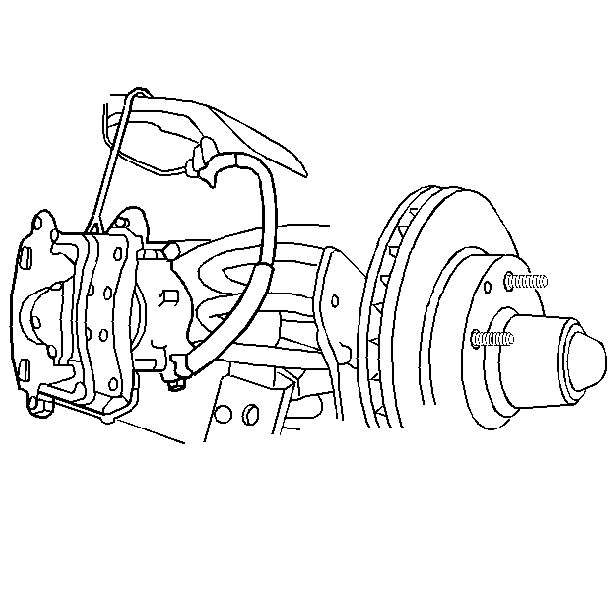
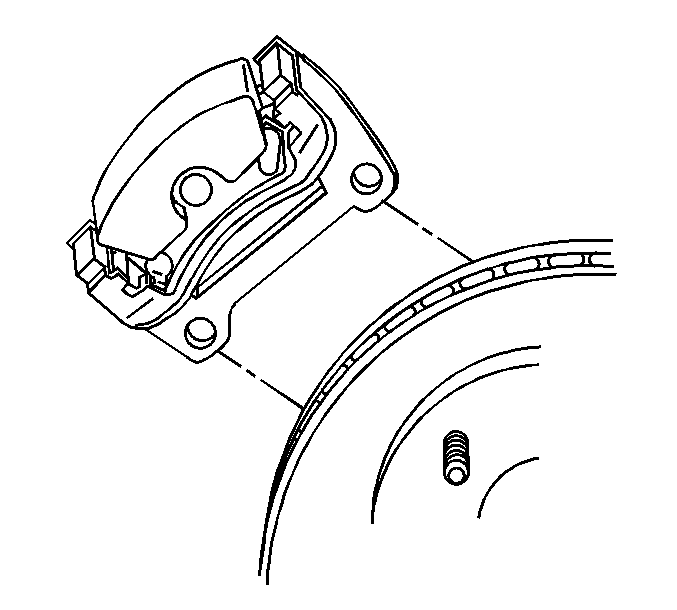
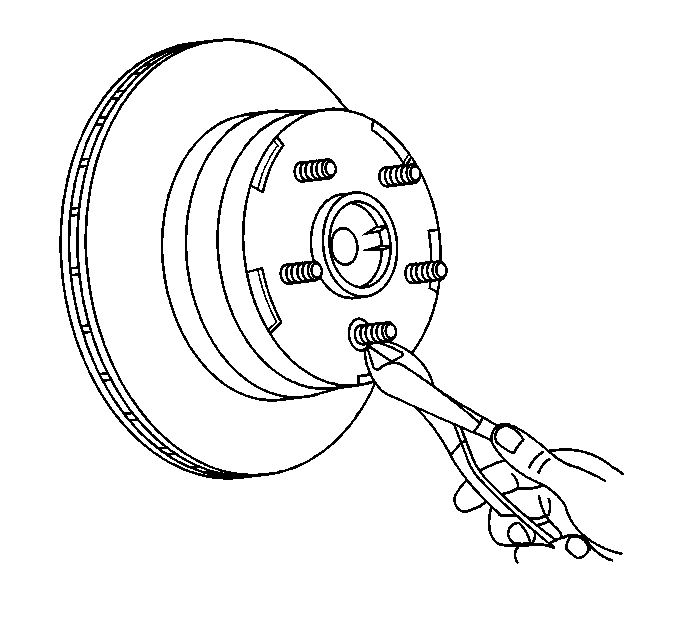
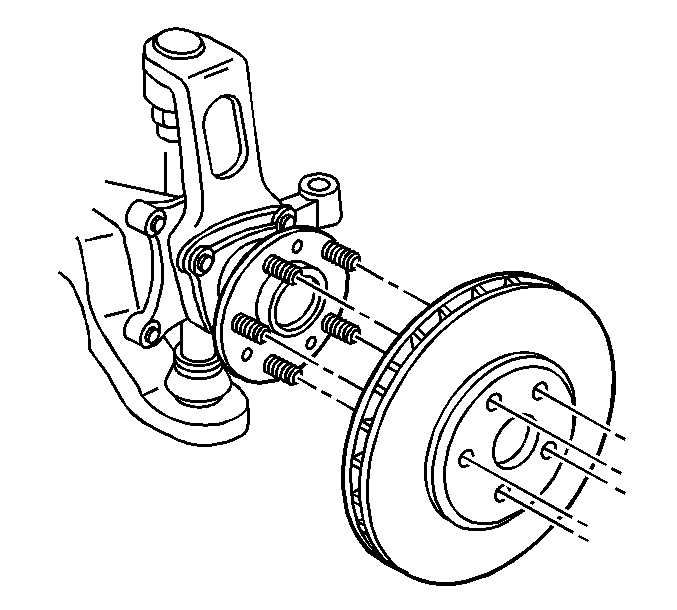
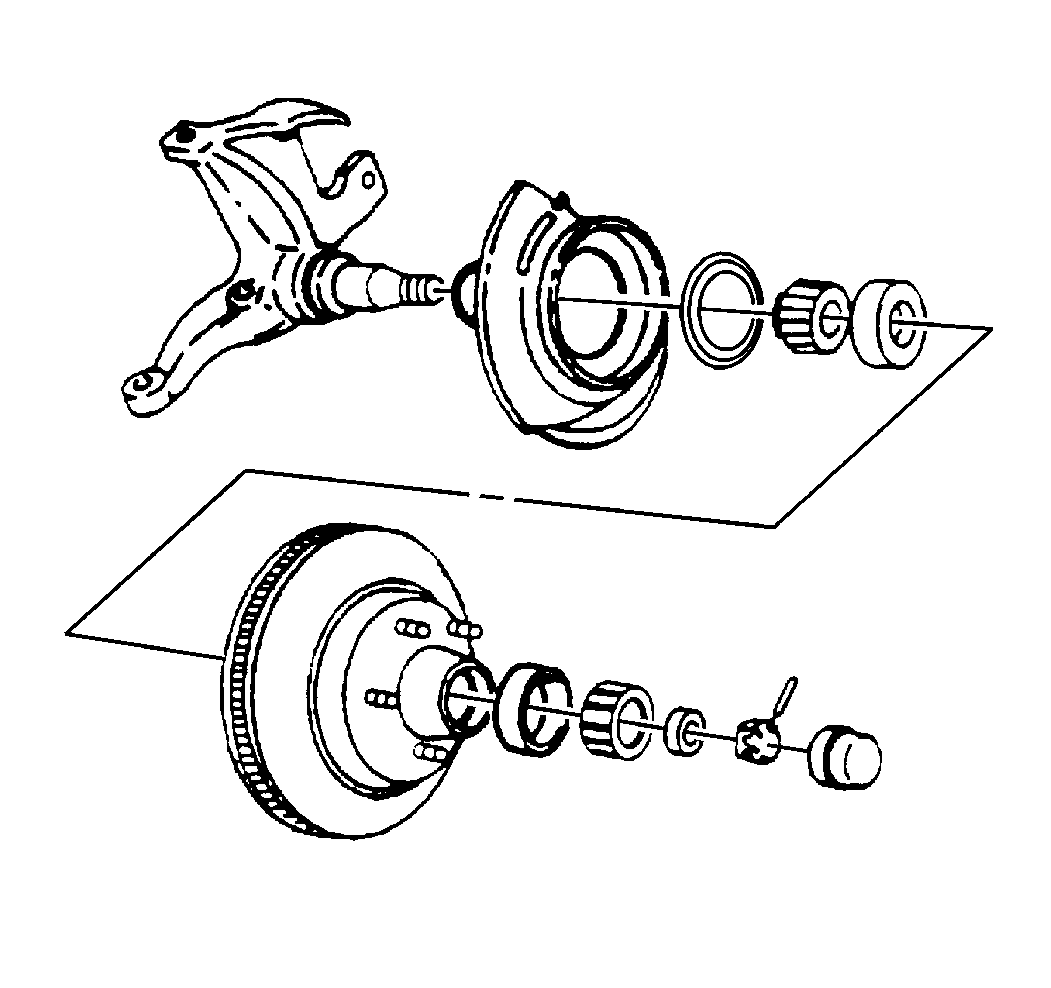
Installation Procedure
- Using the J 42450-A , clean the hub flange, 4 wheel drive vehicles.
- Install the brake rotor, 4 wheel drive shown.
- Install the brake rotor and wheel bearings, 2 wheel drive vehicles only. Refer to Front Wheel Hub, Bearing, and Seal Replacement in Front Suspension.
- Install the brake caliper and mounting bracket, 4 wheel drive vehicles. Refer to Brake Caliper Replacement .
- Install the brake caliper, 2 wheel drive vehicles. Refer to Brake Caliper Replacement .
- Install the tire and wheel assembly. Refer to Wheel Installation in Tires and Wheels.
- Lower the vehicle. Refer to Lifting and Jacking the Vehicle in General Information.
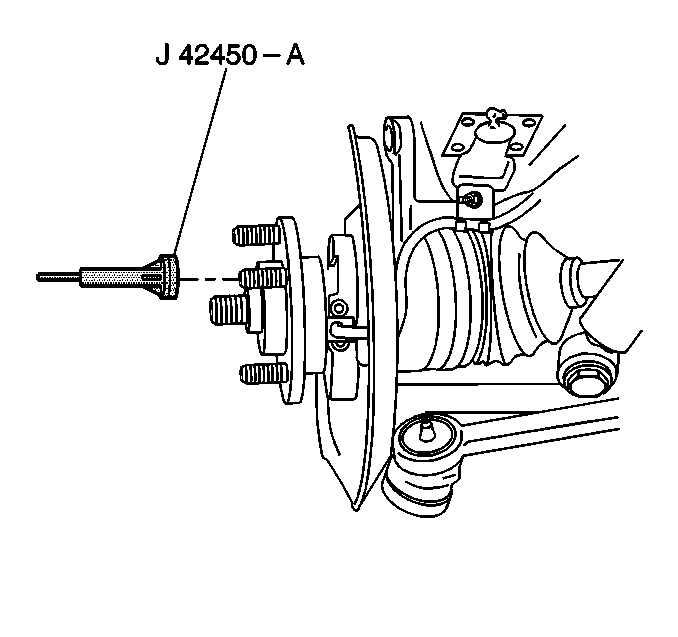



Brake Rotor Replacement Rear Wheel
Removal Procedure
- Remove the caliper bracket mounting bolts.
- Remove and suspend the caliper and caliper bracket assembly.
- Remove and dispose of the sheet metal retainers.
- Remove the rotor. Slowly turn the rotor while pulling the rotor away from the axle flange.
- Inspect and clean all parts. Replace parts as necessary.
- Refinish the rotor if required. Refer to Brake Rotor Refinishing .
Important: Do not disconnect the brake hose from the caliper or separate the caliper from the caliper bracket.
Notice: Do not allow the brake components to hang from the flexible brake hoses. Damage to the brake hoses could result.

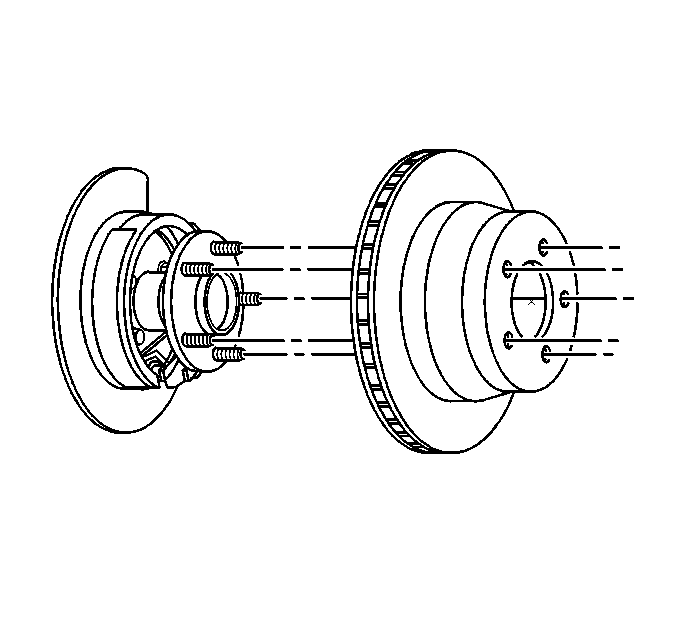
Installation Procedure
Caution: Do not move the vehicle until a firm brake pedal is obtained. Failure to obtain a firm pedal before moving vehicle may result in personal injury.
Notice: Whenever the rotor has been separated from the axle flange, clean any rust or foreign material from the mating surface of the axle flange and brake rotor. Failure to do this may result in increased lateral runout of the rotor and brake pulsation.
- Use the J 42450-A in order to clean the axle flange.
- Install the rotor. Slowly turn the rotor while pushing the rotor on the axle flange.
- Verify that the brake pads are in position.
- Install the caliper and caliper bracket assembly over the rotor.
- Install the caliper bracket mounting bolts.
- Burnish replaced or refinished rotors. Refer to Brake Pad and Rotor Burnishing .
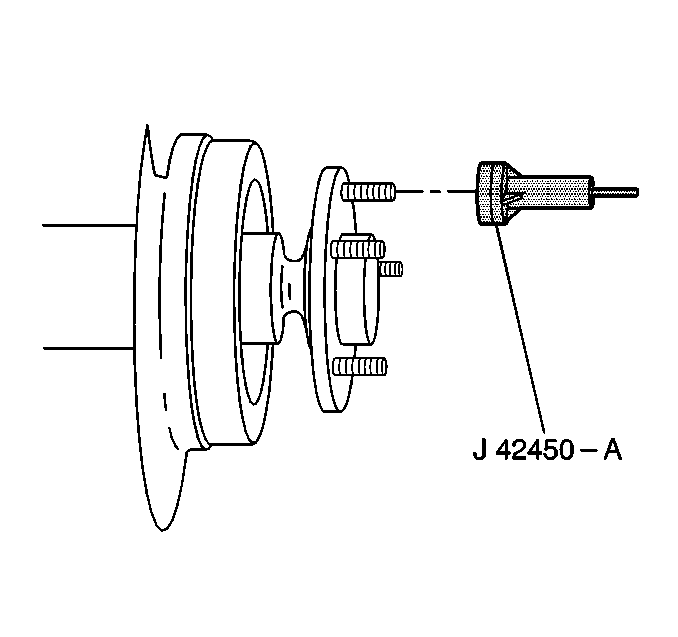

Notice: Use the correct fastener in the correct location. Replacement fasteners must be the correct part number for that application. Fasteners requiring replacement or fasteners requiring the use of thread locking compound or sealant are identified in the service procedure. Do not use paints, lubricants, or corrosion inhibitors on fasteners or fastener joint surfaces unless specified. These coatings affect fastener torque and joint clamping force and may damage the fastener. Use the correct tightening sequence and specifications when installing fasteners in order to avoid damage to parts and systems.
Tighten
Tighten the bolts to 70 N·m (52 lb ft).
